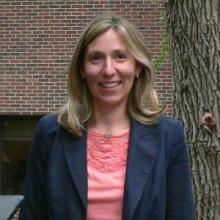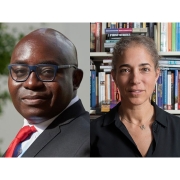Penn Physicists Overcome Obstacle to Faster DNA Sequencing

The instructions for building all of the body’s proteins are contained in a person’s DNA, a string of chemicals that, if unwound, would form a sentence 3 billion letters long. Each person’s sentence is unique, so learning how to read gene sequences as quickly and inexpensively as possible could pave the way to countless personalized medical applications.
Researchers in the Department of Physics and Astronomy have now found a way to sequence DNA based on threading that string through a tiny hole and using a nearby sensor to read each letter as it passes.
Their DNA sensor is based on graphene, an atomically thin lattice of carbon with unique electrical properties that the scientists hope to use to make faster and more sensitive sequencing devices. To do so, however, they needed to find a way to drill the hole, or nanopore, in the graphene without the electron microscope ruining the material’s sensitivity. In their latest study, they realized they could drill the nanopores accurately using a less-defined view of the graphene, which left the electrical sensitivity intact. This may eventually help scientists measure DNA 1,000 times faster than current methods.
The team includes Professor of Physics and Astronomy Marija Drndić and members of her laboratory, including graduate student Matthew Puster and postdoctoral researchers Julio Rodríguez-Manzo and Adrian Balan. Their research was published in the journal ACS Nano.
Read the full story here.





